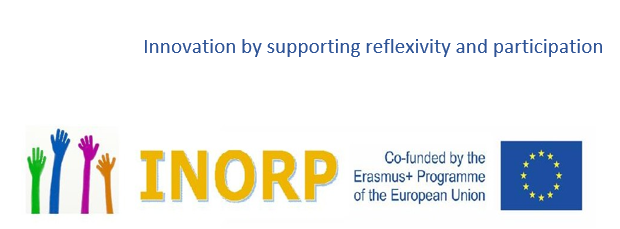Reflexivity and participation in communities PT

10. Module sections
10.1. Section 1: Background, principles and context of participative research approaches
Aim: To familiarise PhD candidates with the wider conceptual and political context in which participative research approaches are located, their potential and difficulties in realisation
| Theme | Topic | Guiding questions |
|
Research traditions |
Objectivity and subjectivity in human science research Epistemology between positivism and post- modern relativism Contexts and interpretations of “Evidence Based Practice” |
What reasons justify researcher objectivity? How can detachment and neutrality prevent you from obtaining meaningful insights into your research topic? What counts for you as |
| Challenges in social work research |
Types and pragmatics of research partnerships in view of limitations imposed by |
What could be undesirable outcomes of my research project? Which criteria distinguish desirable from undesirable research outcomes? |
|
Forms and levels of |
- Community-controlled and -managed, no professional researchers involved. – Advisory group involved in research design or dissemination. Proposal: “Democratic partnership” |
What is the intended level of community / user involvement in your research project?
What kind of practical |
Resources:
Burdon, P. D. (2015). Hannah Arendt: On Judgment and Responsibility. Griffith Law Review, 24 (2), pp. 221–243.
D'Cruz, H., & Jones, M. (2004). Three different ways of knowing and their relevance for research. SAGE Publications Ltd, https://doi.org/10.4135/9780857024640
Fleming, J., Beresford, P., Bewley, C., Croft, S., Branfield, F., Postle, K. and Turner, M. (2014) ‘Working together: innovative collaboration in social care research’, Qualitative Social Work, 13(5): 706–22.
Healy, K., Darlington, Y. & Yellowlees, J. (2011) Family participation in child protection practice: an observational study of family group meetings. Child & Family Social Work, 17 (1),1–12.
Krumer-Nevo, M. (2008) From ‘noise’ to ‘voice’: how can social work benefit from knowledge of people living in poverty? International Social Work, 51 (4), 556–565.
McCracken, S. G., & Marsh, J. C. (2008). Practitioner expertise in evidence-based practice decision making. Research on Social Work Practice, 18(4), 301–310.
Nolan, M., Hanson, E., Grant, G., Keady, J. and Magnusson, L. (2007) . ‘Introduction: what counts as knowledge; whose knowledge counts? Towards authentic participatory enquiry’, in M. Nolan, E.
Hanson, G. Grant and J. Keady (eds), User Participation in Health and Social Care Research, (pp 1–14) Berkshire: Open University Press.
Reason, P. & Bradbur, H. (Eds.), Handbook of action research: Participative inquiry and practice. London: Sage.
Roose, R., Roets, G., Van Houte, S., Vandenhole, W. & Reynaert, D. (2013). From parental
engagement to the engagement of social work services: discussing reductionist and democratic forms of partnership with families. Child & Family Social Work, 18 (4), 449-457.
Ziegler, H. (2020). Social work and the challenge of evidence-based practice. In S. Kessl, F., Lorenz, W., Otto, H.-U. & White (Ed.), European Social Work - a compendium (pp. 229–272). Oldenburg: Barbara Budrich.
